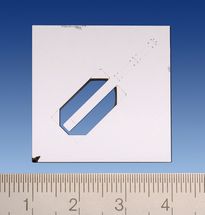IFRA Press Release: IFRA issues 43rd Amendment to Safety Standards
The International Fragrance Association (IFRA) has announced the 43rd Amendment to the IFRA Code of Practice. This Amendment relates to a total of 60 Standards, 8 of which are new Standards based on QRA, 26 stay identical but change format of how they are presented and another 26 are related to materials with pre-existing Standards, which needed updating.
The main focus of the Amendment is the implications of the new Quantitative Risk Assessment (QRA), introduced by IFRA in 2005. The QRA approach is designed to restrict fragrance materials that have a potential to induce skin sensitization. This method identifies exposure limits for various consumer product types. Product types are then grouped into 11 product categories according to similar safety assessment factors and exposure levels. This new approach is a much more refined approach for evaluating sensitizing materials, and so provides more precise guidance on use levels of materials depending on the situation and the product in which they are used; ultimately it will better protect the consumer from becoming sensitized to a specific material.
The QRA approach is one of the main pillars of the IFRA Code of Practice. The latter is a comprehensive document that supports the IFRA commitment to provide products that are safe for the consumer and the environment.
The Code of Practice applies to the manufacture and handling of all fragrance materials, for all types of applications and contains the full set of IFRA Standards. Abiding by the IFRA Code of Practice is a prerequisite for all fragrance supplier companies that are members of IFRA (either directly or through national associations). The majority of client companies (including producers of toiletries and household products) expect their fragrances to comply with IFRA Standards as set out in the Code. The Fragrance Houses affiliated to IFRA represent an overall market share of approximately 90% of the worldwide fragrance compounds market.
Amendments to the Code, if required, are issued annually, based on new scientific developments. These contain either new usage restrictions or revisions of existing usage restrictions.
Other news from the department politics & laws

Get the analytics and lab tech industry in your inbox
By submitting this form you agree that LUMITOS AG will send you the newsletter(s) selected above by email. Your data will not be passed on to third parties. Your data will be stored and processed in accordance with our data protection regulations. LUMITOS may contact you by email for the purpose of advertising or market and opinion surveys. You can revoke your consent at any time without giving reasons to LUMITOS AG, Ernst-Augustin-Str. 2, 12489 Berlin, Germany or by e-mail at revoke@lumitos.com with effect for the future. In addition, each email contains a link to unsubscribe from the corresponding newsletter.













































